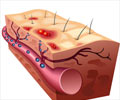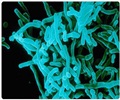Vaccines for Children
A number of vaccines are now available to protect children from various diseases.
Do remember that there are a few essential vaccines that should be always administered to all the children. Some of the other vaccinations are optional and maybe administered depending on the risk of exposure to the condition.
Some of the commonly available vaccines used in children are listed below:
BCG (Bacillus Calmette-Guerin) Vaccine: The BCG vaccine is an anti-tuberculosis vaccine. It is a live attenuated vaccine administered to babies at birth. It is injected into the skin of the outer arm. A small swelling appears around 7 to 10 days following the injection, which then ulcerates and heals leaving a scar. The immunity conferred by the BCG vaccine is not permanent and not entirely predictable. It usually lasts for 15 to 20 years.
Polio vaccines: There are two types of polio vaccines, the oral polio vaccine and the inactivated polio vaccine. The oral polio vaccine (OPV), also called Sabin vaccine, is a live attenuated vaccine administered as 2 drops orally usually at birth and around 6, 10 an 14 weeks, and later at 1.5 years and 5 years of age. Under the ‘Pulse Polio Immunization Program’, in an attempt to eradicate the disease, it is administered in addition, twice a year to all children less than 5 years of age. The inactivated polio vaccine (IPV), also called the Salk vaccine is an injectable vaccine that is preferred in some countries in their immunization schedules.
DPT vaccine/ Triple antigen: The DPT vaccine confers immunity against three deadly diseases, diphtheria, pertusis or whooping cough and tetanus. It is administered as an intramuscular injection into the thigh to all children at 6, 10, 14 weeks with a booster at 1.5 years of age. The vaccine is usually replaced with a Double antigen DT which contains diphtheria and tetanus toxoid at age 5. Tetanus vaccine is repeated at age 10 and 15 years. The DTaP vaccine, also known as DTPa or TDaP that causes fewer side effects compared to the DPT vaccine, is also available. However, its cost does not justify its widespread use. The Tdap vaccine is a form of the DPT vaccine that can be administered in individuals from 11 to 64 years of age.
Hepatitis B vaccine: Hepatitis B vaccine is administered as three doses at 6 weeks, 10 weeks, 14 weeks (along with the DPT vaccine) and at 6 months of age if the mother is known to be negative for the hepatitis B antigen HBsAg. If it is not known if the mother is positive or negative for HBsAg, an additional dose should be administered within 24 hours of birth. If the mother is positive for HBsAg and/or HBeAg, the baby is administered Hepatitis B Immune Globulin and hepatitis B vaccine within 24 hours of birth. Hepatitis B vaccine is included in the National Immunization Schedule of India in some districts.
MMR (Measles Mumps Rubella) vaccine: The MMR vaccine is administered to children over the age of 1 year, usually between 15 to 18 months. A second dose of MMR is administered any time 18 months following the first dose, usually given around 5 years of age. The MMR vaccine protects the child against measles, mumps as well as German measles. A measles only vaccine is also available, which is administered at 9 months of age.
Typhoid Vaccine: The typhoid vaccine provides immunity for one to three years following the injection. However, it should not be administered to children less than two years of age. An oral typhoid vaccine is also available, which is taken as three doses in the form of capsules. The oral capsules should not be administered to children less than 5 years of age.
Hib vaccine (Hemophilus influenza type b vaccine): The Hib vaccine protects infants and children from complications like meningitis and pneumonia caused by Hemophilus influenza virus. It is administered as 3 doses at 6, 10 and 14 weeks with a booster at 15-18 months.
Chicken pox vaccine/ Varicella vaccine: Chicken pox vaccine prevents the viral infection in children. It is administered as a single dose in children between the ages of 1 and 12 years. A mild form of the infection may occur following the vaccination. Since it is not a compulsory vaccine in India, it may be administered after discussion with the parents of the child.
Pneumococcal conjugate: The pneumococcal conjugate vaccine protects children from pneumonia, meningitis and other complications caused by Streptococcus pneumonia. The vaccine is administered as three doses at 6, 10 and 14 weeks and a booster at 15 to 18 months. Currently, it is an optional vaccine in India and is given only if the parents desire.
Rota virus vaccine: The rotavirus vaccine is administered in 2 to 3 doses at 4 to 8 week intervals in infants more than 6 weeks of age. It protects infants against severe diarrheal disease caused by rotavirus. It is an optional vaccine.
Hepatitis A vaccine: The hepatitis A vaccine protects infants against hepatitis A infection. It is an optional vaccine administered in 2 doses at 6 to 12 month intervals after 18 months of age.
HPV (Human Papilloma Virus) Vaccine: The HPV vaccine prevents cervical cancer in females. The HPV virus is spread through sexual contact and is associated with the development of cervical cancer. Thus, immunizing girls against HPV before they are sexually active can help to prevent the development of cervical cancer. It is administered to girls after the age of 10 years in 3 doses at 0, 1-2 months and 6 months.













